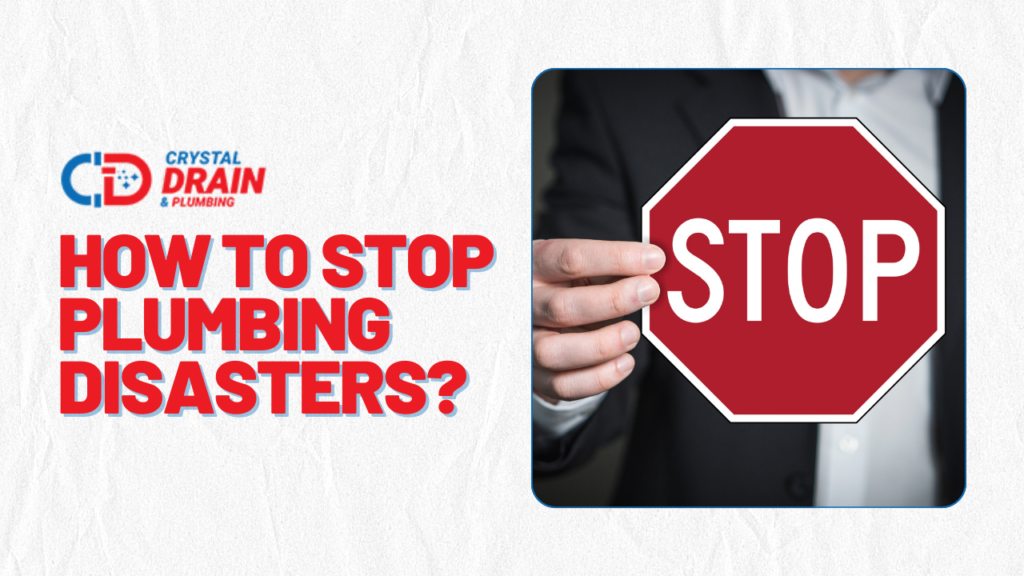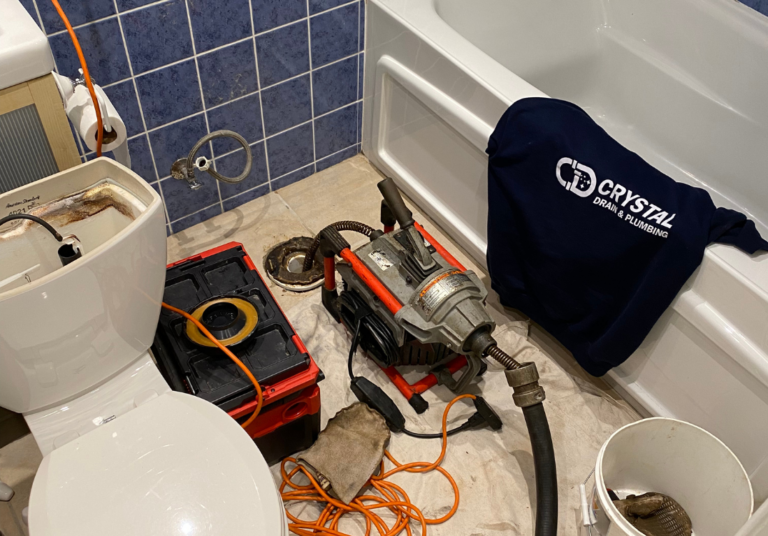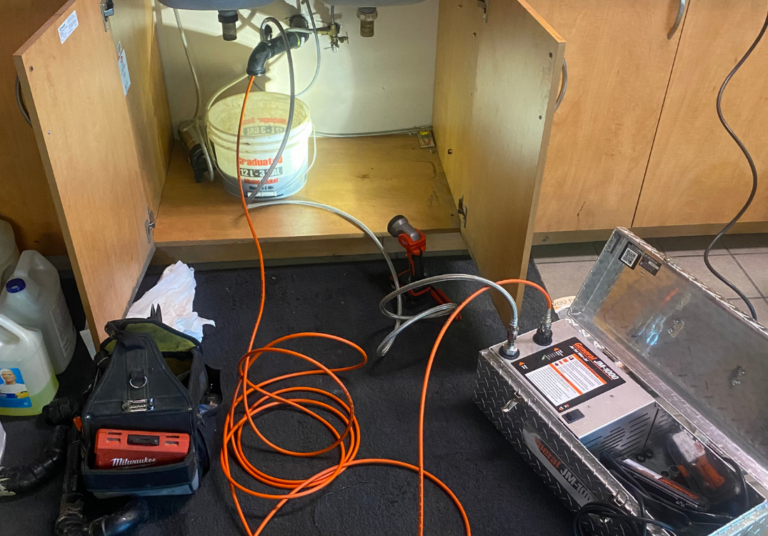How to Stop Plumbing Disasters

Plumbing disasters can bring the entire household to a standstill, causing frustration, expensive repairs, and inconvenience. Thankfully, with some proactive maintenance and a little knowledge of how your plumbing system works, you can avoid these disasters and keep your home’s plumbing in good condition year-round.
A plumber is like a doctor for your plumbing system, and while they are crucial for emergency repairs, there are many steps you can take to prevent issues from escalating into major disasters.
Key Takeaways
- Regular Inspections Save Money
Scheduling annual plumbing inspections can help detect potential issues early, saving you from costly and disruptive repairs in the future. - Know Your Main Water Shutoff Valve
In case of a plumbing emergency, knowing where your main water shutoff valve is can prevent extensive water damage and flooding. - Clean Drains and Pipes Regularly
Regular cleaning of your drains and pipes helps prevent clogs and sewage backups, extending the lifespan of your plumbing system. - Be Cautious About What You Flush
Avoid flushing non-biodegradable items like wipes, paper towels, or grease, which can cause serious blockages and plumbing issues. - Call a Professional When Needed
Even with proper maintenance, some plumbing issues require professional expertise. Don’t hesitate to call a plumber for any major concerns to prevent disasters.
Preventing Plumbing Disasters
From clogged drains to burst pipes and leaking toilets, many plumbing issues can be avoided with the right precautions. Here’s how you can prevent plumbing emergencies before they ruin your day:
1. Regular Plumbing Inspections
Scheduling an annual plumbing inspection is one of the best ways to prevent plumbing disasters. A professional plumber can identify potential problems early on, helping you avoid costly and disruptive repairs later.
During an inspection, the plumber will use specialized equipment, like a camera, to inspect your drains and sewer lines for signs of blockages, leaks, or corrosion. Additionally, the plumber will check appliances, faucets, pipes, and fittings for signs of wear. Detecting issues early allows you to fix them before they become emergencies.
Benefits of a plumbing inspection include:
- Early detection of leaks or weaknesses
- Prevention of major plumbing failures
- Lower overall repair costs

2. Know Where Your Main Water Shutoff Valve Is
In the event of a plumbing emergency, the first thing you should do is shut off the main water supply to your home. This will stop the flow of water and minimize any potential flooding or water damage.
Most homes have a main shutoff valve located in the basement, utility room, or outside along the exterior wall of the house. Familiarize yourself with its location and make sure that everyone in your household knows where to find it in case of an emergency. Knowing how to quickly turn off the water can prevent extensive water damage and give you the time to call for professional help.

3. Clean Your Pipes and Drains Regularly
Clogged drains and pipes are among the most common plumbing issues homeowners face, and they can lead to serious problems like sewage backups or even burst pipes. Regular cleaning of your drains and pipes can help prevent blockages and keep things flowing smoothly.
Why regular cleaning matters:
- Prevents blockages – Build-up of grease, hair, soap, and debris can clog drains over time.
- Reduces odors – A clean drain eliminates foul odors caused by stagnant water and organic buildup.
- Extends the life of your plumbing – Prevents corrosion and keeps your pipes in good condition for years to come.
- Avoids sewage backups – Regular cleaning ensures there’s no buildup that could lead to overflow or sewage backups.
Hiring a professional plumber for regular pipe and drain cleaning can ensure that your system is free of buildup without causing damage. It’s an environmentally friendly solution that avoids the need for harsh chemicals, which can damage pipes in the long term.
4. Be Mindful of What You Flush
The bathroom is one of the most common places where plumbing issues arise. Many people flush things they shouldn’t, which can lead to clogged toilets or blocked pipes. Even if products claim to be “flushable,” such as wipes or paper towels, they can cause serious blockages.
What not to flush:
- Baby wipes, disinfecting wipes, and other so-called “flushable” products
- Paper towels, napkins, or facial tissues
- Grease, oil, or food scraps
- Any plastic or non-biodegradable items
If you notice your toilet draining slowly or water backing up, it might be a sign that something’s caught in the pipes. Avoid flushing anything besides toilet paper to reduce the risk of clogs.
5. Install Water Pressure Regulators
Excessive water pressure can cause strain on your plumbing system, leading to leaks, bursts, and damage to pipes and fixtures. If you notice high water pressure (for example, if faucets sputter or your shower head sprays water aggressively), consider installing a pressure regulator.
A water pressure regulator controls the pressure of water entering your home, ensuring that it stays within safe limits. This small investment can prevent major plumbing issues down the line and extend the lifespan of your pipes.
6. Call a Professional When Needed
While there are many simple plumbing maintenance tasks you can do yourself, some issues require the expertise of a licensed plumber. Calling in a professional plumber when needed can save you from costly repairs and ensure that your plumbing system stays in top condition.
When to call a plumber:
- If you notice water stains, dampness, or leaks on walls, ceilings, or floors
- If you encounter repeated clogs that DIY methods can’t fix
- When you have low water pressure or no hot water
- For major repairs like burst pipes or sewer line issues
Remember, when in doubt, it’s always best to call for professional plumbing services. Waiting until a small problem becomes a big disaster can cost you more time and money in the long run.
Final Thoughts
Taking proactive steps to maintain your plumbing system can save you from plumbing disasters and ensure that your home remains comfortable and functional. Regular inspections, knowing how to shut off the water supply, cleaning your drains, and taking care of your pipes are all important practices that can help you avoid costly repairs and inconvenient plumbing emergencies.
FAQs
It’s recommended to have a professional plumbing inspection at least once a year to identify potential issues before they become major problems.
Immediately turn off the main water supply and call a professional plumber to assess and repair the damage. A burst pipe is an emergency that requires immediate attention.
While chemical cleaners may work for minor clogs, they can damage pipes over time and may not be effective for more stubborn blockages. It’s best to have a plumber clean your drains regularly.
Signs of high water pressure include faucets sputtering, noisy pipes, or water spraying out of showerheads forcefully. Installing a pressure regulator can help control this issue.
The most common causes include clogged drains, burst pipes due to freezing, water pressure issues, and neglecting regular maintenance or inspections.
